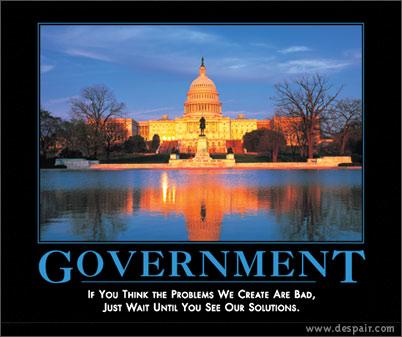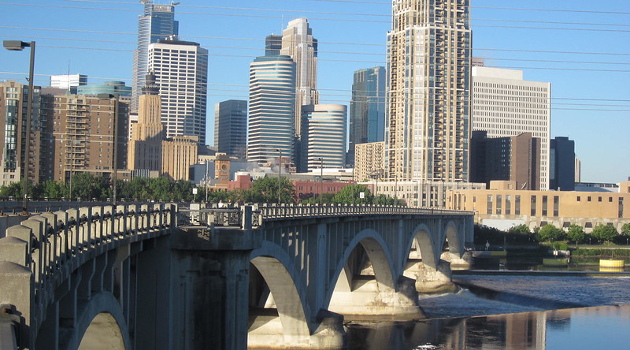One might think that the most poorly governed city is a place such as San Francisco, Detroit, New York City, and Chicago.
 Or Seattle, if we just count recent history.
Or Seattle, if we just count recent history.
But let’s not overlook Minneapolis. I wrote two months ago about that city’s hostility to capitalism, but the problems go well beyond run-of-the-mill government greed.
An article in the Star Tribune reveals that the city not only failed to protect property when riots broke out, it then demanded owners of business pre-pay taxes before giving them a permit to clean up the damage caused by government failure.
In Minneapolis, on a desolate lot where Don Blyly’s bookstore stood before being destroyed in the May riots, two men finish their cigarettes and then walk through a dangerous landscape filled with slippery debris and sharp objects. The city won’t let Blyly haul away his wreckage without a permit…
Minneapolis requires owners to prepay the second half of their 2020 property taxes in order to obtain a demolition permit. …“Minneapolis has not been particularly friendly toward business for some time,” said Blyly, who prepaid $8,847 in taxes last week but still hasn’t received his demolition permit. …On average, the owners of properties destroyed or significantly damaged owe $25,000 in taxes for the second half of 2020, which come due in October, according to a Star Tribune review of county property records. “When it first hit my desk, I was flabbergasted that this was a requirement,” said developer David Wellington, whose family owns several properties that were destroyed in the riots.
This isn’t adding insult to injury. It’s adding injury to injury.
To make matters worse, the Star Tribune also reported that business owners aren’t allowed to protect themselves by installing metal shutters.
After looters crashed through his floor-to-ceiling windows and stole $1 million worth of booze in May, Chicago-Lake Liquors owner John Wolf wanted to protect himself from a repeat occurrence. Like property owners throughout the world, he wanted to install security shutters on the outside of his building.
The investment would not only prevent rioters from entering his store, it would protect his windows — which cost $50,000 to replace. But Wolf ran into a big obstacle: The city of Minneapolis has barred security shutters on building exteriors since 2004. …In a report justifying the rule change, Minneapolis officials argued that external shutters “cause visual blight” and create the impression that an area is “unsafe” and “troublesome.” But in the wake of the riots, when police failed to prevent widespread looting and damage to more than 1,500 businesses in the Twin Cities, property owners said they can no longer count on the city to protect their property. …”I have never felt so vulnerable,” said Brandow, whose shop is two blocks from another car-repair business that was destroyed in the May riots.
The bottom line is that businesses can’t rely on government to protect property, and the government then makes it hard for them to protect themselves.
Give the mistreatment by city politicians, one might expect some businesses to simply give up.
And, according to a report by WCCO, that’s beginning to happen.
Even before…destruction and looting, a number of downtown businesses had been re-thinking their future in the city. WCCO spoke with some of them…about the damage they endured and their futures moving forward.
One of those businesses is Dahl Medical Supply, located at 12th and Nicollet. They’ve been downtown for about 12 years. “You feel so hopeless and helpless…,” Lisa Steffes said. That helpless feeling grew throughout Wednesday night, as Steffes watched surveillance video of looters ransacking her store. …other businesses could soon close their doors for good. Chad Laux has run Greenway Chiropractic at 811 LaSalle for 17 years. …Laux says downtown crime has made things worse. “We’ve lost six people in this building already,” Laux said.
To be sure, Minneapolis isn’t at a tipping point. At least not yet.
 Minneapolis does rank in the bottom half of Dean Stansel’s U.S. Metropolitan Area Economic Freedom Index, but it’s not in the bottom 10.
Minneapolis does rank in the bottom half of Dean Stansel’s U.S. Metropolitan Area Economic Freedom Index, but it’s not in the bottom 10.
As such, there hasn’t been the steady and significant exodus of taxpayers that plagues Chicago, Los Angeles, and New York City.
But all the more reason why a city should be concerned about starting down that path.
Once a city gets a bad reputation, it’s hard to reverse.
P.S. My favorite city is zero-income-tax Monaco. I’m not sure what American city would be at the top of my list, but you’ll notice on the map that most of the cities attracting residents are in states with no income tax.
———
Image credit: Doug Kerr | CC BY-SA 2.0.

